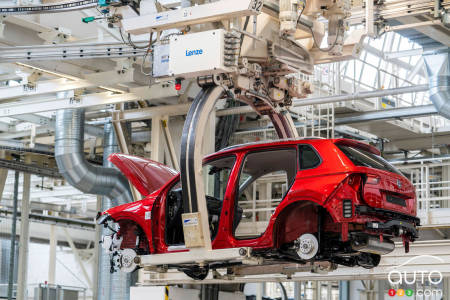Employees at nine Volkswagen plants in Germany stopped work on Monday in two-hour strikes, blocking assembly lines. These actions come against a backdrop of deep disagreement between management and unions over the future of Europe's largest carmaker.
The strike action began at the plants in Wolfsburg, Volkswagen's historic headquarters, and spread to other key sites, including those in Hanover and Zwickau that produce electric vehicles only.
Tensions inflamed by wage cuts and closure threats
The workers' anger follows management's announcement of a 10-percent pay cut and plans to close several sites in Germany, the first in the company's 87-year history. Volkswagen justifies these measures by the need to cut costs in the face of weak demand, a slower-than-expected electric transition and fierce competition from Chinese automakers.
Daniela Cavallo, Chairwoman of Volkswagen's Works Council, said the proposals cross employees' “red lines”, adding that plant closures and mass layoffs are unacceptable.

A major economic and industrial impact
The strike has brought the assembly of hundreds of cars, including the Golf, to a halt at Wolfsburg, which employs 70,000 workers. The disruptions, which could intensify with prolonged or indefinite strikes, are likely to exacerbate the drop in Volkswagen's production, already affected by a drop in deliveries and profits.
Thorsten Groeger, negotiator for the IG Metall union, warned that “Ignoring workers is playing with fire - and we know how to turn sparks into flames.”
A mobilization denouncing unfair management decisions
Strikers criticize management for shifting the burden of strategic errors onto employees. In particular, union representative Sascha Dudzik criticized the consequences of the diesel scandal and the company's falling behind its more innovative Chinese competitors.
“It's not the workers who have made these decisions, but the millionaires at the head of Volkswagen”, he declared in front of demonstrators in Hanover.
A solution still uncertain
The fourth round of negotiations scheduled for December 9 will be crucial to finding common ground. However, the first signals sent by management leave little hope of appeasement.
If no agreement is reached, the crisis could intensify, threatening not only the future of Volkswagen in Germany, but also the stability of the entire European automotive industry.





